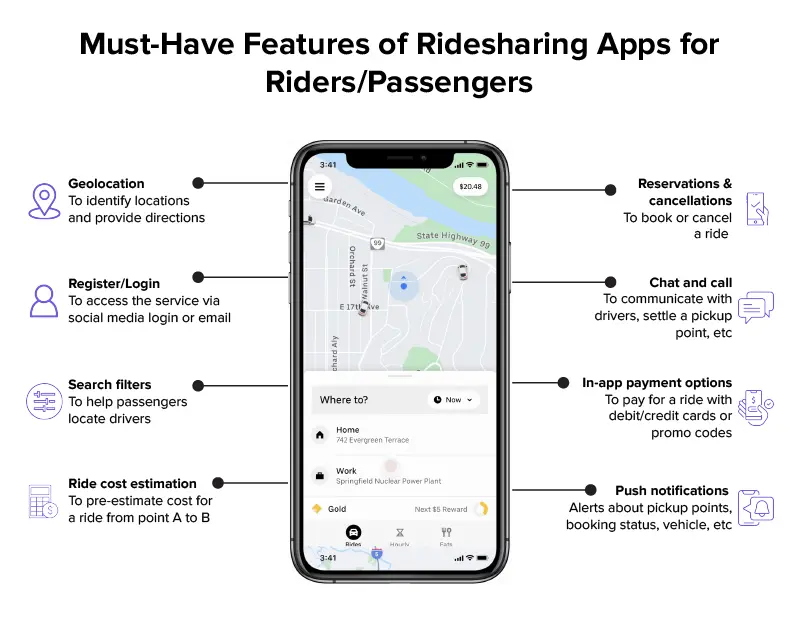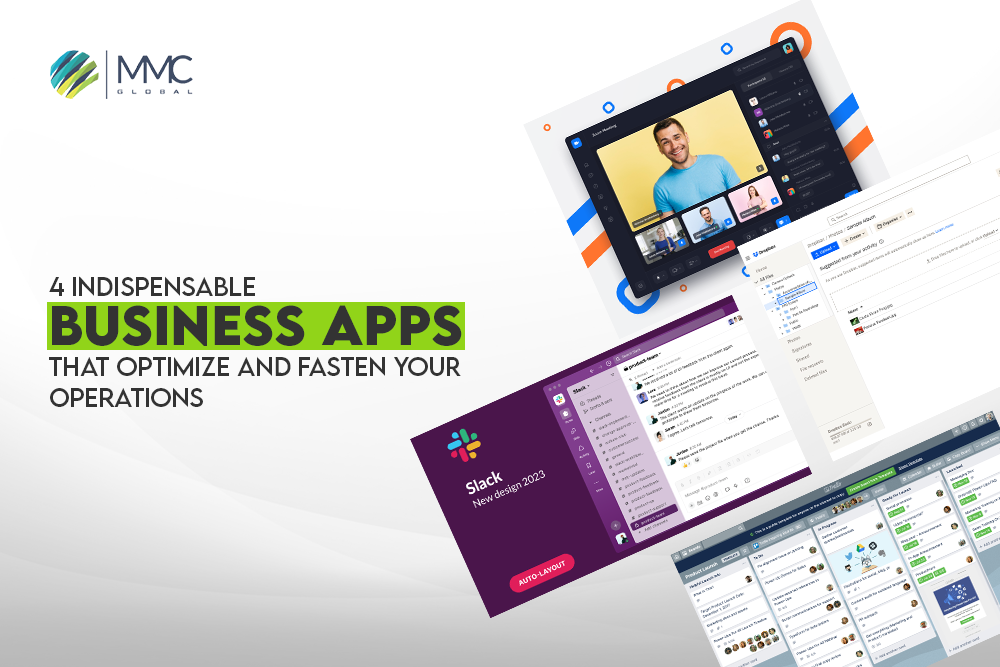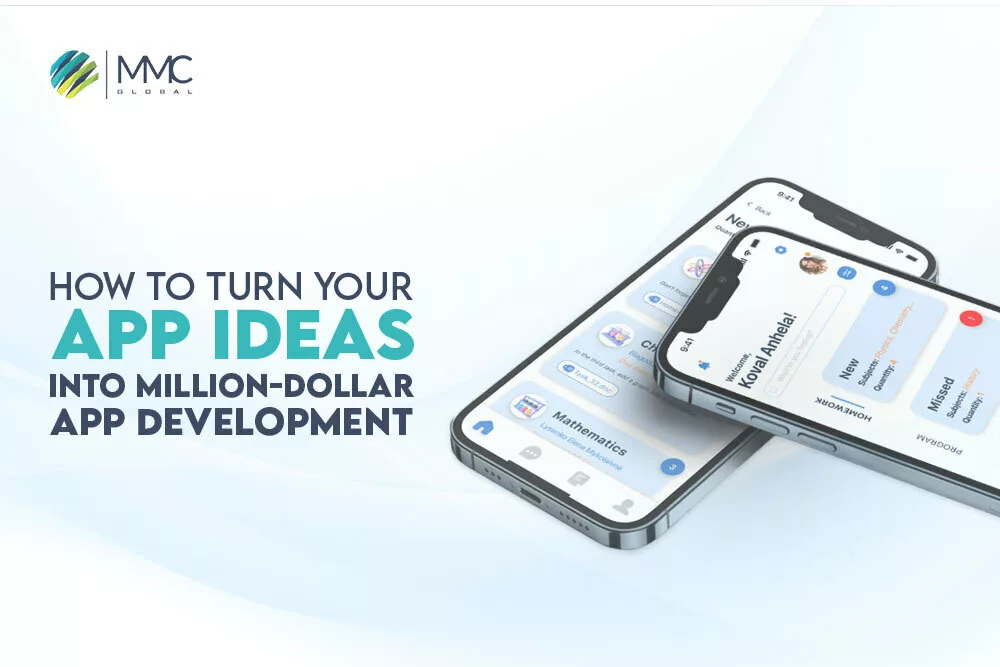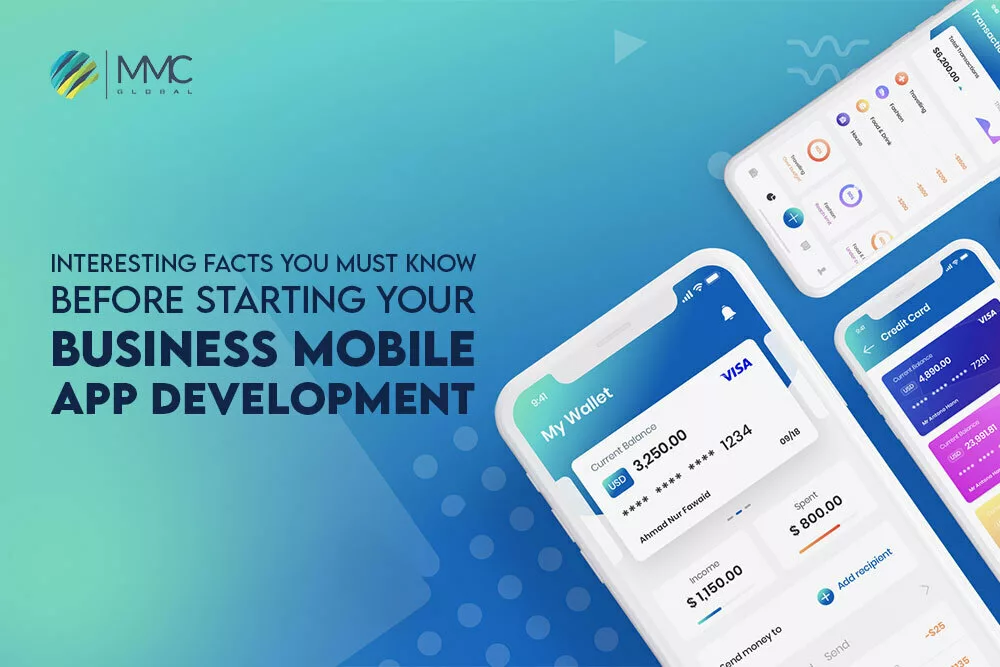Does the Uber application inspire you? Does any idea strike your mind to make an Uber-like application? Well, if you belong to this industry or want to make a belonging, then you’ve chosen the best inspiration. In fact, planning to develop rideshare apps can be a lucrative business model that generates higher revenue streams.
The faster-evolving rideshare concept is highly acceptable across borders. Additionally, it is expected to reach a market value of USD 218 billion by 2025. Getting in the car with strangers and dividing the fare can help people save money as well as time. That is why a rideshare app is a good business model for those who want to kick off their startups.
Why Build an Uber-like Rideshare App
Uber is one of the giants in ridesharing services and commuting apps that operate internationally. From its highly functional mobile application to secure payment methods, Uber created the epitome of success in its industry. In fact, Uber generated $31.8 billion in revenue in 2022, an 82% increase from the previous year.
If Uber has inspired you, you would like to have an exact or more optimized app like Uber that is actually possible. What appeals to Uber is the most worth asking question right now. The answer must be:
- The interface of the Uber App
- The security and reliability
- Secure payment methods
- Easy tracking and ridesharing
- High-performing globally
- And much more…
However, the truth is much more behind the app that keeps users engaged as well as retained. Our developers have gathered in-depth information regarding the tech stack that makes the Uber rideshare app simple.

Let’s get an in-depth look at the tech stack that they used.
Uber Application Tech Stack Analysis
Programming Languages:
- Java: For Android app development.
- Swift/Objective-C: For iOS app development.
Development Frameworks and Libraries:
- Android SDK: To build the Android app.
- iOS SDK: To build the iOS app.
- React Native (in some cases): Uber has experimented with React Native for cross-platform development, though a significant portion of the app was natively developed.
Backend Services:
- Node.js: Uber used Node.js for some of its backend services, especially for real-time features.
- Python: Python was used for data analysis and machine learning.
- Go: For building some high-performance and scalable services.
- Java: In some cases, Java was also used for backend services.
Data Storage:
- MySQL: For relational data storage.
- Cassandra: For distributed and scalable storage.
- Redis: For caching and real-time data.
- Elasticsearch: For search and analytics.
Networking:
- Retrofit (Android): A popular library for making HTTP requests.
- Alamofire (iOS): A similar library for making HTTP requests.
Mapping and Location Services:
- Google Maps: For mapping and location services.
- Mapbox: Uber also acquired Mapbox assets for map services.
Authentication and Security:
- OAuth 2.0: For user authentication.
- TLS/SSL: To secure data transmission.
- JWT (JSON Web Tokens): For securing API communication.
Cloud Services:
- Amazon Web Services (AWS): For hosting and cloud computing services.
Push Notifications:
- Apple Push Notification Service (APNS): For iOS.
- Google Cloud Messaging (GCM) or Firebase Cloud Messaging (FCM): For Android.
Payment Processing:
- Braintree (a PayPal service): Used for handling payments in the app.
- Stripes: To process payments collected from their 3.5 million drivers.
- Adyen: secure credit and debit card payments
The above tech stack information concludes that Uber-like app development needs a professional mobile app development team to handle these enormous technologies and infuse them into a functional application.
How MMC Global Can Help You Build Rideshare Apps?
We will give you amazing reasons why you need to build rideshare apps like Uber because we know the business potential of ridesharing services. MMC Global has competed with giant mobile app development companies and successfully conquered projects beyond expectations. We specialize in mobile app development, including iOS, Windows, Android, or cross-platform app development with almost every tech stack.
Furthermore, we have experience developing rideshare apps from scratch with highly functional features on-demand. No matter how challenging your requirements are, our mobile app development team is highly focused on overcoming all challenges with their capabilities.
We just not only provide a solution but also help you be aware of what is best for your business or future growth. From consultation to designing and development to deployment, we can do everything with great proficiency.
Let us explain to you why you need rideshare apps like Uber so that you can make the right decision for your investment.
Easy To User Access
Everyone has many things on their plates; people find ease and quickness as much as possible. Finding a way to automate commuting is another level of satisfaction for them. Uber takes this pain point into account and works on many attributes like ride booking or ridesharing. Therefore, the Uber application provides both services with maximum accessibility; one can book private transportation or carpool with another passenger to reduce costs and save time. How fascinating it is. Isn’t it?
Exertion Less UI Designing
Undoubtedly, Uber has a great minimalistic user interface that increases user engagement and ultimately enhances user experience. Uber application is an example of a lightweight, intuitive, and easy-to-navigate application. It means you have a great inspiration that can help you design your app with all important features as well as navigation. So why do hard work if you have smart inspiration? Just execute it to jump on faster development!
Cashless Cab Services
In the world of digitalization, Uber takes your expectations to another level by providing cashless, convenient services. As soon as you book a car, your driver is capable enough of redirecting your location without asking too many questions. Integrating an e-hail account is worth mentioning, contributing to a pivotal role in the cashless experience. As soon as the driver drops off the passenger, he receives a payment receipt with links for rating and tipping the driver.
Price Lucidity
The Uber rideshare app provides comprehensive driver and ride details, including approximate estimated fare, arrival time, distance to pickup points, etc. This helps passengers to be ready to take their ride before the drivers come to their doorstep and start the peaceful journey with a hassle-free booking process.
Customizable Clone Structure
Uber application structure is highly customizable so that you can clone the app architecture and remove or add your preferred features as per your preference. It saves a lot of time and cost, which leads to successful, faster app development.
Market Competitive Solution
Uber or other Rideshare service apps in the US may be performing so well in the market, but if you throw a boundary-pushing product as compared to Uber or other rideshare apps, the whole market will be yours. We build highly competitive, feature-rich, and powerful apps that others want to be like. Our previous giant project is proof of our strength. Whether you want to market your app in North American countries like Mexico, Canada, etc., or initiate your startups with states of the US like Texas, Houston, etc., we will turn your ideas into reality.
Read more: 8 Transport Mobile Apps in the USA to Solve Your Commuting Headache
Building a rideshare app like Uber involves multiple components and factors, influencing the overall cost. Below is a breakdown of key considerations and their cost implications:
1. Key Features of a Rideshare App
To build a functional app, you typically need the following:
User App Features
- Registration/Login (via email, phone, or social accounts)
- Ride Booking (pickup/drop-off locations)
- Fare Estimation (real-time price calculation)
- Live Tracking (GPS and navigation integration)
- Payment Integration (credit card, wallets, etc.)
- Ratings and Reviews (user-driver feedback)
- Ride History (past rides and receipts)
Driver App Features
- Driver Registration (document upload and verification)
- Ride Requests Management (accept/reject rides)
- Navigation (optimized routes for drivers)
- Earnings Dashboard (real-time earnings tracking)
Admin Panel
- Dashboard (analytics and monitoring)
- User and Driver Management (profile approvals, bans, etc.)
- Revenue Reports (earnings tracking)
- Surge Pricing Control (manual or automatic adjustments)
- Dispute Resolution (handle customer issues)
2. Cost Breakdown
The development cost varies depending on factors like the app’s complexity, the tech stack, and the development team’s rates.
Development Hours
The number of development hours required for a rideshare app is approximately:
- User app: 500–700 hours
- Driver app: 400–600 hours
- Admin panel: 200–400 hours
- Backend and API development: 300–500 hours
- UI/UX Design: 100–200 hours
- Testing and QA: 150–250 hours
Estimated Costs
- For a basic rideshare app: $100,000–$300,000
- For a feature-rich app with advanced functionalities (e.g., AI-powered route optimization, ride-sharing, multi-language support): $300,000–$500,000+
3. Third-Party Costs
- Maps & Navigation: Google Maps API ($5–$7 per 1000 requests)
- Payment Gateways: Stripe/PayPal (2.9% + $0.30 per transaction)
- Push Notifications: Firebase or Twilio (free to pay-as-you-go)
- Hosting: AWS or similar cloud services ($100–$1000+ per month depending on scale)
4. Additional Considerations
- MVP Development: Starting with a Minimal Viable Product (MVP) costs 30–50% less.
- Maintenance Costs: Post-launch maintenance costs are typically 15–20% of the development cost annually.
- Marketing Budget: Often 30–50% of the app’s development cost for user acquisition.
Are You Ready to Take a Dive In Rideshare App Development?
Rideshare services evolve with the ridesharing apps, enabling passengers to collaborate, connect, and commute together in one ride. Many ride-hailing apps provide these features that actually reduce fares of passengers, reduce traffic congestion, ensure safety, and are very eco-friendly. The more people share the rides, the fewer vehicles appear on the road, leading to reduced carbon footprint, air pollution, and less crowding.
At MMC Global, we provide our software development services and mobile app development services in US and across the globe for almost every sector, including private and government sectors. Our giant government projects have been delivered successfully in the countries like US, UAE, etc, and we are here to assist you in launching a public app that can access everyone around the country to understand routes, detect traffic congestion, share rides, and much more. Furthermore, building rideshare apps enables the country to experience a less populated environment. We have a diverse range of mobile app ideas that open up multiple lucrative opportunities, overcome daily life challenges, optimize workflows, and whatever you need.
Let’s be clear: We do not sell our solution, but we build long-term relationships with you so that you can discover your business potential with the rise of futuristic solutions. Our expertise is not limited to mobile app development, but we are experts in infusing futuristic AI models, IoT solutions, blockchain-exclusive systems, and much more. Let’s build something that gives your rival a tough time!





